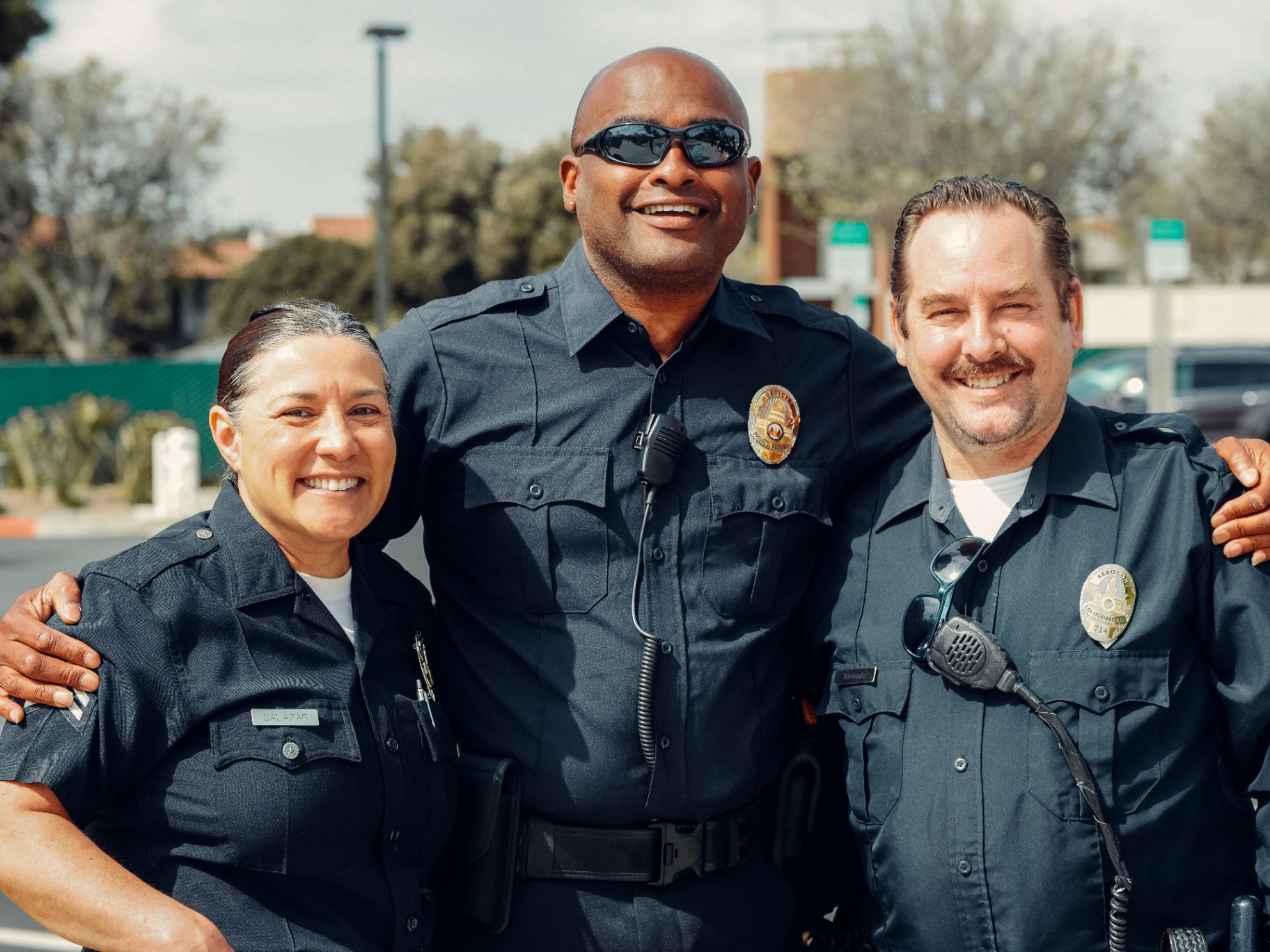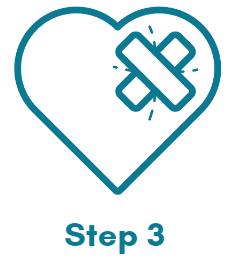What is First Responder Trauma
 While the rest of us run away from danger, first responders run towards it; They bear witness to, and offer support during, life’s most difficult and terrifying moments; And they encounter violence, death, and tragedy on a daily basis.
While the rest of us run away from danger, first responders run towards it; They bear witness to, and offer support during, life’s most difficult and terrifying moments; And they encounter violence, death, and tragedy on a daily basis.
In a single week, first responders are exposed to more traumatic events than most people are in a lifetime. This increases the likelihood that they will at some point in their careers experience post-traumatic stress and related difficulties such as PTSD, anxiety, or depression.
When you pride yourself in taking care of others, one of the hardest tasks can be prioritizing taking care of yourself.
What contributes to first responder trauma?
First responders include police, firefighters, paramedics and other field and disaster responders. First responder trauma can affect paid professionals, interns, and volunteers – trauma doesn’t discriminate by paygrade.
The nature of the job and the workplace culture can contribute to the development of trauma symptoms.
First responders are exposed to more traumatic events in one week, than most people are in a lifetime.
It does not matter how much training someone receives, eventually, we can experience what is called “accumulated trauma”. This is when events pile on and slowly create traumatic change.
The “suck it up” and slowly changing workplace stigma around help seeking and trauma symptoms stalls the healing process.
 Let’s make this very clear – post-traumatic stress is not a weakness. It is a natural response to a deeply distressing event. When we experience a traumatic event, we are required to process it. When we believe there’s nothing to process or that we can’t reach out for help, we get stuck. This can lead to post-traumatic difficulties such as PTSD, depression and anxiety. The only way through it is accepting that you need some support and a safe place in which to process your thoughts and emotions.
Let’s make this very clear – post-traumatic stress is not a weakness. It is a natural response to a deeply distressing event. When we experience a traumatic event, we are required to process it. When we believe there’s nothing to process or that we can’t reach out for help, we get stuck. This can lead to post-traumatic difficulties such as PTSD, depression and anxiety. The only way through it is accepting that you need some support and a safe place in which to process your thoughts and emotions.
First Responders are unable to fully disconnect from their traumas.
Veterans get to leave the location of their trauma. Natural disaster survivors understand the danger has passed. First responders are constantly exposed to distressing events and in places that are local to them.
Many first responders don’t have anyone to talk to about the trauma.
First responders often don’t have family and friends who would understand or know how to support them through their daily experiences. This can be incredibly isolating.
What are the symptoms of PTSD?
- Intrusions
- unwanted memories
- nightmares
- triggered by people, places, things, sounds, tastes, and smells

Avoidance of memories or triggers- avoidance of work
- changing patterns to avoid triggers
- withdrawing socially
- increased drug and alcohol use
- Negative changes in thoughts
- negative beliefs about self or others
- blaming self or others for what happened
- Negative changes in emotions
- feeling numb or overwhelmed by emotions
- guilt, shame, sadness
- angry outbursts
- Hypervigilance
- increased startle response
- difficulty concentrating or sleeping
- irritability
If some of these symptoms resonate with you, it’s possible that you’re experiencing post-traumatic stress.
How can New Moon Psychotherapy help?
At New Moon Psychotherapy, we are committed to guiding you through each step of your healing journey and use evidence-based therapies (the ones that research suggest work) to treat first responder trauma.
 Cognitive Processing Therapy (CPT)
Cognitive Processing Therapy (CPT)
CPT is especially useful if you’ve been avoiding memories and emotions about the event and are experiencing changes in your thinking since the event. Some common thoughts are: “It’s my fault”, “I should/shouldn’t have done X”, “if I only X, then Y”, “people can’t trust others”, “the world is dangerous”, “Things won’t ever get better”. Treatment is typically 3-4 months.
Eye Movement Desensitization and Reprocessing (EMDR)
EMDR can be a powerful therapy because it works to changes how our brain stores our trauma memories. It can be especially helpful for people who experience recurring flashbacks or have a hard time speaking about their traumas. It involves a combination of talk therapy with non-invasive bilateral stimulation (following a sound, moving your eyes, or tapping your hands).
Prolonged Exposure Therapy (PE)
PE is especially useful if you’ve ben avoiding people, places, and things since the event. For example, if you’ve noticed that your behaviour has significantly changed since the event – such as taking the long way home, giving up hobbies, and spending less time with others, out of fear that doing so will bring up difficult memories, trigger a flashback, or put you in harm’s way, PE might be a good fit. Treatment is typically 3-4 months.
Sensorimotor Psychotherapy and Somatic Psychotherapies
These are novel approaches to the treatment of trauma which are based on the belief that our bodies are impacted by our traumatic experiences (the body really does keep the score).
Somatic Psychotherapy can be particularly helpful for individuals who experience somatic symptoms following the traumatic event. For example – physical pain, hyperarousal and panic, unexplained illnesses, etc.
Sensorimotor Psychotherapy helps individuals become aware of how their bodies communicate emotions and give them more control over their emotions without having to talk about the distressing event.
 We also offer individual and/or group support for loved ones who might be struggling with effectively supporting the survivor in their life.
We also offer individual and/or group support for loved ones who might be struggling with effectively supporting the survivor in their life.
Your therapist might decide that there are other approaches that might be helpful and will discuss your options with you.
Not sure which therapy is right for you? You can leave this part up to us. When you reach out, we’ll ask you some questions and make some recommendations for you.





